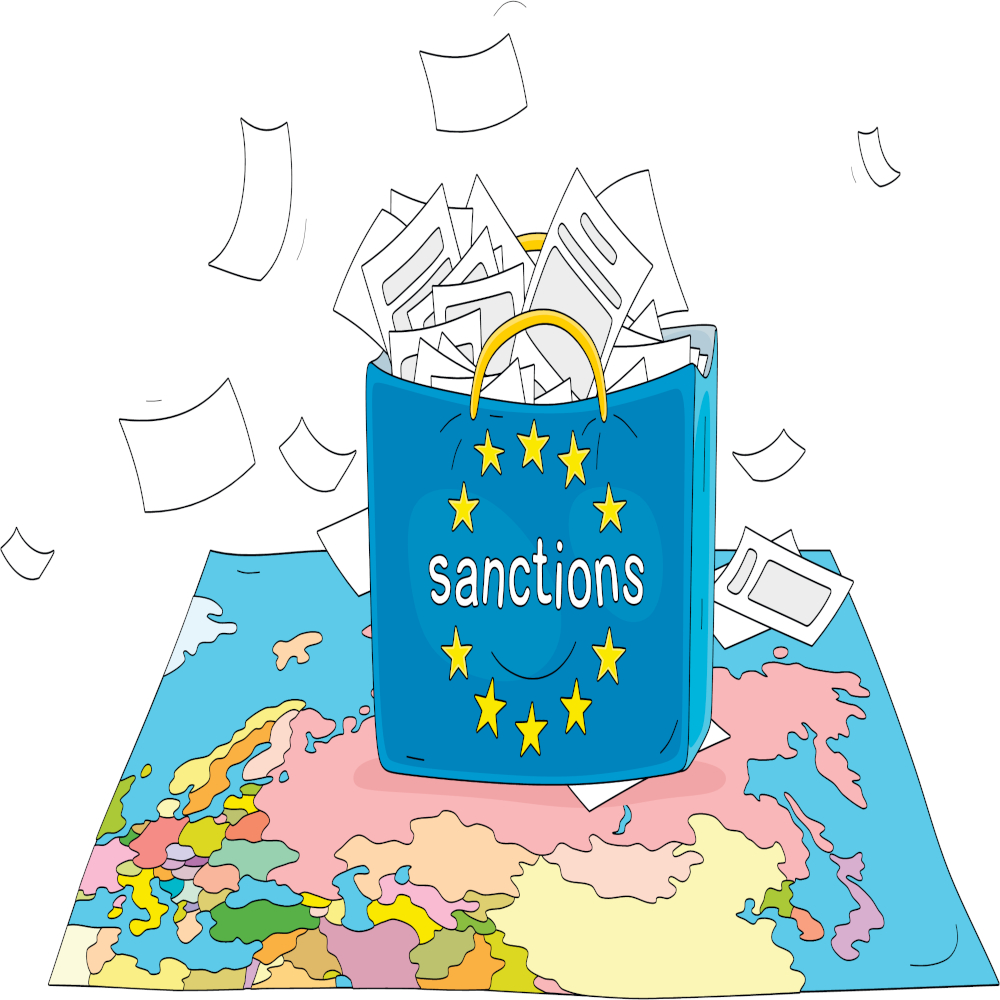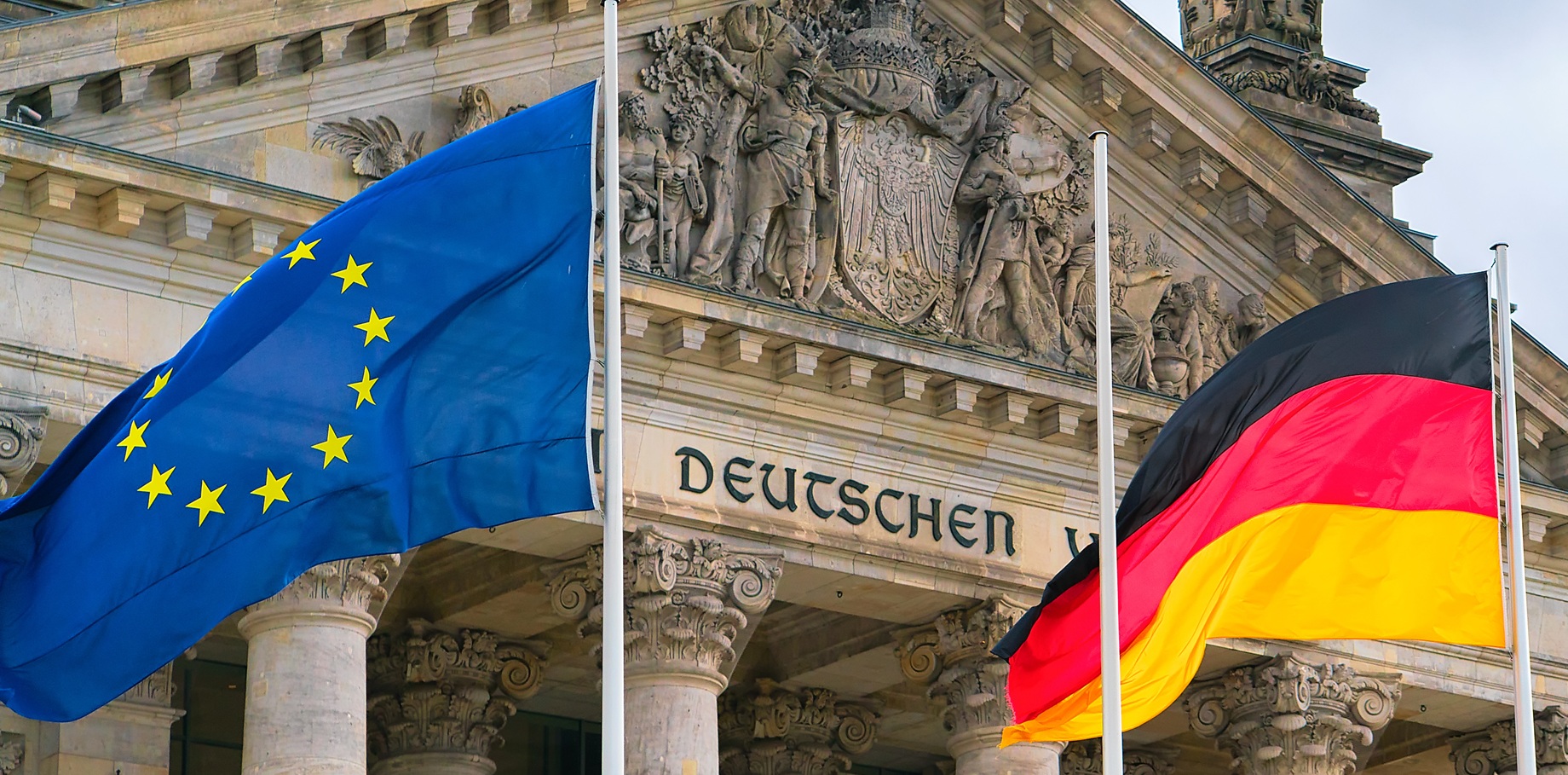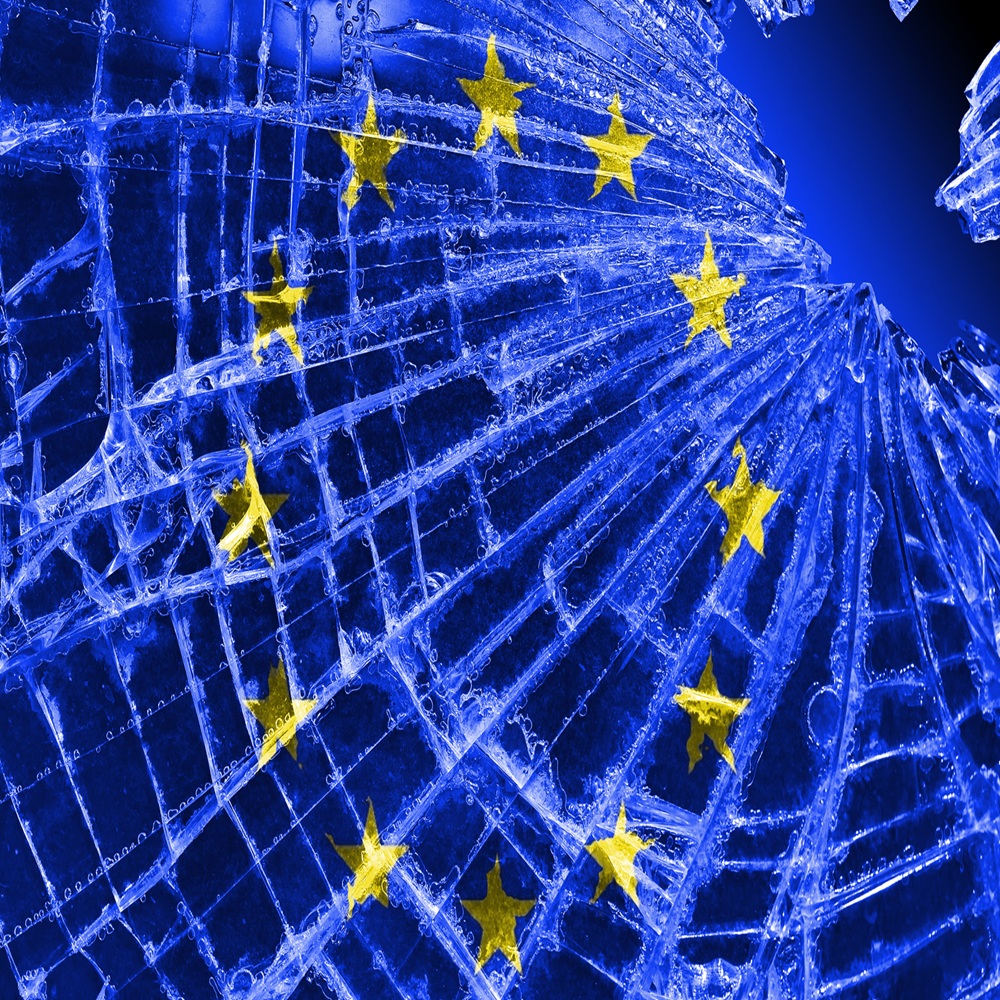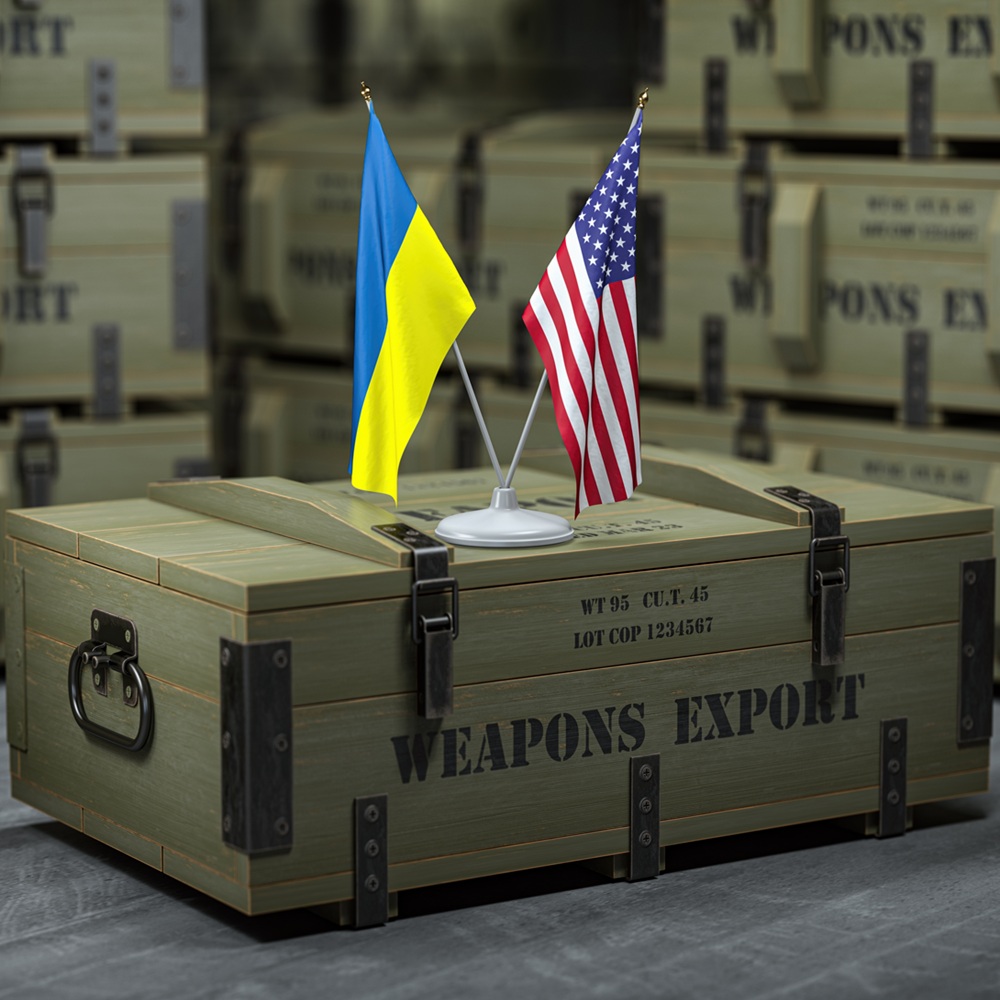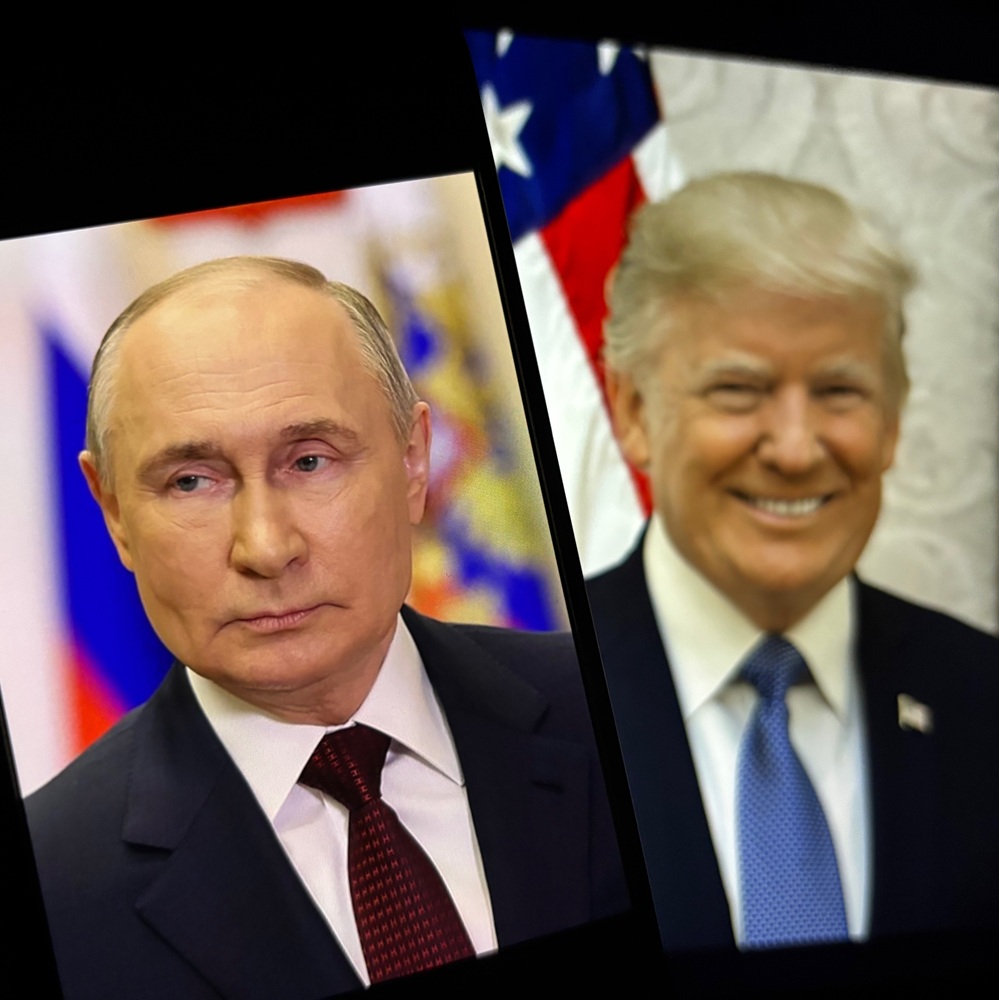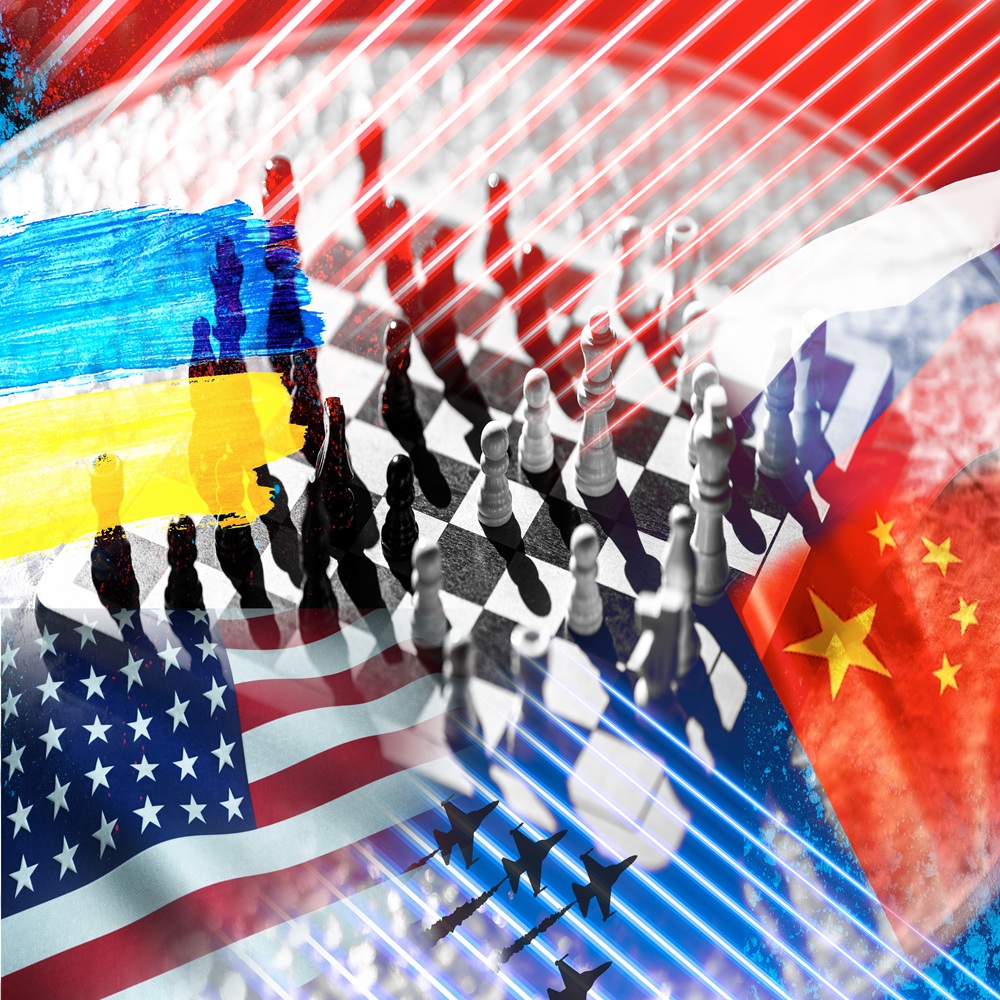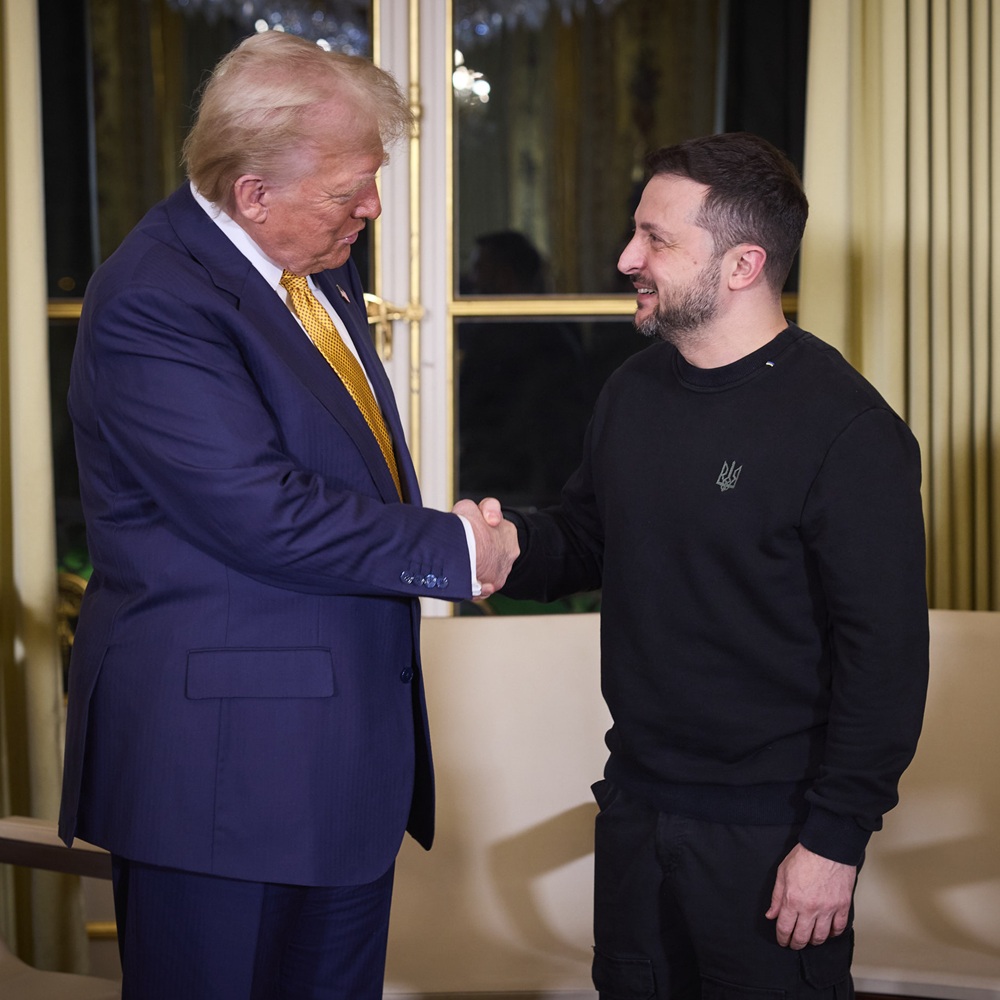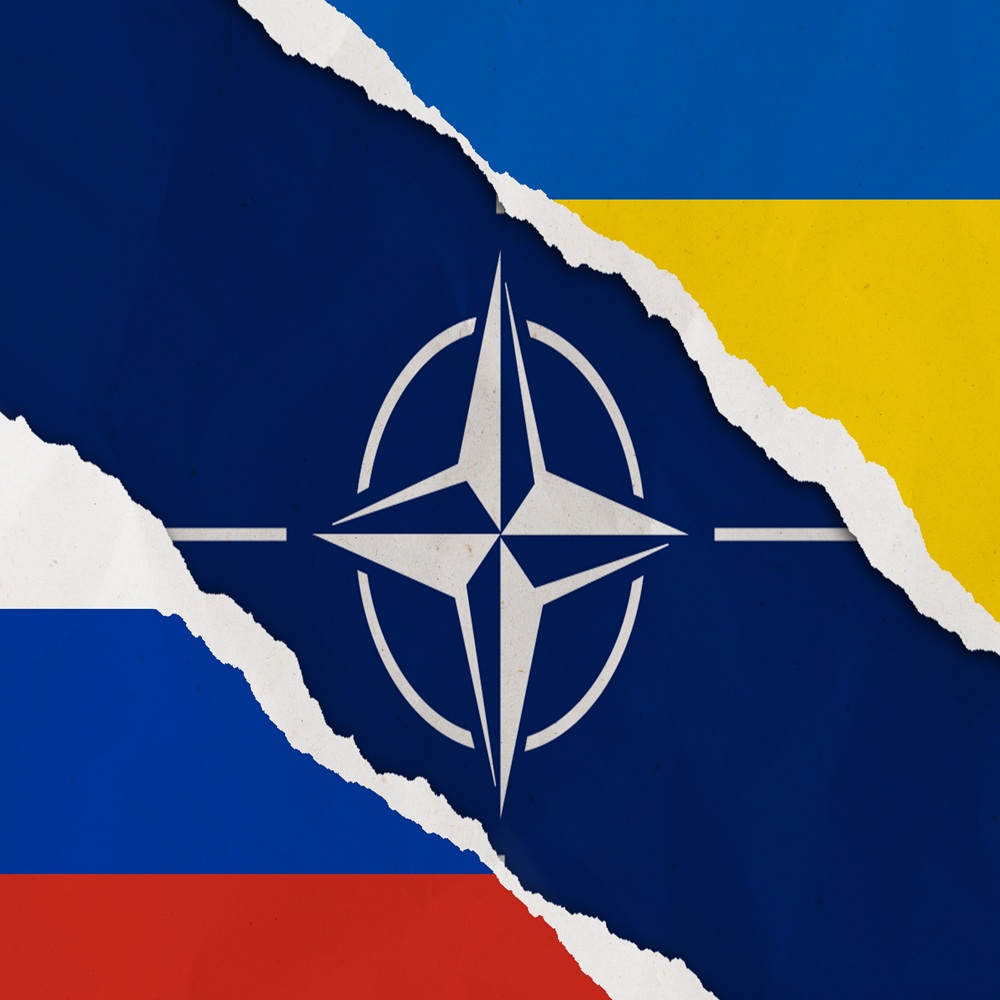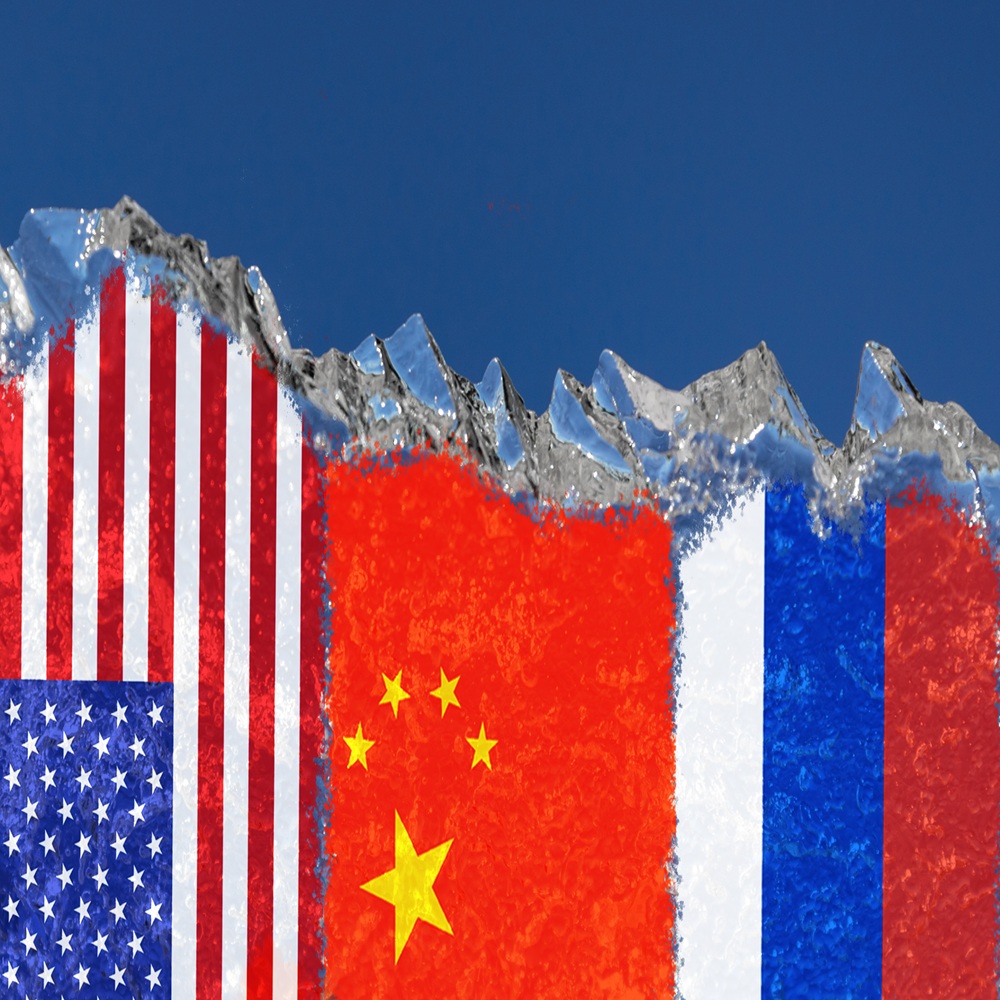
Divided Arctic in a Divided World Order
by Rasmus Gjedssø Bertelsen
한국어로 읽기 Leer en español In Deutsch lesen Gap اقرأ بالعربية Lire en français Читать на русском Introduction Arctic order historically, currently, and in the future reflects the world order. The idea of ‘Arctic exceptionalism’ is not valid and is a poor guide for policy. During Cold War bipolarity, the Arctic was divided between the Soviet Arctic and the Nordic and North American Arctic. US victory and Soviet defeat in the Cold War led to US unipolarity and hegemony which was the basis for a circumpolar (including Russia) liberal (as opposed to realist) Arctic order with organizations, such as the Arctic Council, International Arctic Science Committee, University of the Arctic, Barents and Bering regional cooperation, all on liberal topics such as science, environment, Indigenous rights, people-to-people cooperation.Footnote1 US unipolarity and hegemony are slipping away to world order characteristics of continued US unipolarity and hegemony, Sino-American bipolarity in economics and S&T and multipolarity illustrated by BRICS+. Sino-US competition and US-Russia conflict to the extent of proxy-war in Ukraine reflect these changes. The Arctic, which is de facto divided between the US-led NATO-Arctic and the Russian Arctic, where Russia reaches out to the BRICS+ in diplomacy, economics, and S&T, reflects these changes to world order. There is wishful thinking in the West of returning to post-Cold War US unipolar and hegemonic ‘liberal world order’ or ‘rules-based order’ and the circumpolar liberal Arctic order with it. This wish is probably unrealistic for global trends in demography, economics, S&T, legitimacy, etc. Significant conflict can be expected between the US/West and China and Russia on developments in world order, with the Global South standing by. The Arctic is likely to remain divided between the US-led NATO Arctic and the Russian Arctic seeking engagement with the BRICS+ world for the future with extremely limited cooperation and risk of spill-over from the Ukraine War and other US-Russia-China conflicts. The Arctic in international order There are two common, but invalid, narratives about the Arctic, which are poor guides for policy: First, ‘Arctic exceptionalism’, that the Arctic was apart from international politics and allowed for West-Russia cooperation unlike elsewhere, especially between the Russian annexation of Crimea in 2014 and the Russian full-scale invasion of Ukraine in 2022. Second, a presentist discourse, where international interests in the Arctic are seen as rising in the last 15 years, driven by climate change, the Russian flag planting on the seafloor of the North Pole in 2007, and the United States Geological Survey’s assessment of oil and gas resources in 2008, north of the Arctic Circle. Rather, the Arctic has for centuries closely mirrored the international system, whether multipolar with Western colonial empires before the World Wars, bipolar Cold War between the US and the USSR, post-Cold War US unipolarity and hegemony, or the current emerging Sino-American bipolarity and multipolarity. During 2014–2022, cooperation in the Arctic was not exceptional compared to US-Russia non-proliferation cooperation, most notably with the Iran nuclear deal in 2015, or removing chemical weapons from Syria. There was extensive US-Europe-Russia and wider collaboration around the International Space Station. There was extensive energy trade and investment between Russia and Europe, most notably with the Nord Stream 1 and 2 pipelines under the Baltic Sea. The bipolar Cold War Arctic in the bipolar Cold War order Bipolarity with two superpowers standing out from all other great powers due to their demographic, economic, science and technology, military, and ideological weight and global claims, the US and the USSR, shaped the the Cold War order. Bipolar logic shaped the international order. John Mearsheimer explains well the structural logic of a nuclear-armed bipolar superpower security competition, and he points out how each superpower formed ‘bounded orders’ of allies and clients to discipline them and mobilize their resources. These bounded orders were the West for the US with its institutions, and the East Bloc for the USSR.Footnote2 This bipolar logic was also clear in the Arctic, divided between the Nordic and North American Arctic of the West and the Soviet Arctic by the Iron Curtain in Europe and the Ice Curtain in the Bering Strait. Circumpolar Arctic cooperation was limited to the Polar Bear Treaty of 1973 between the USSR, Norway, Kingdom of Denmark, Canada, and the US, Norwegian Soviet joint fisheries management in the Barents Sea, and some Bering Strait cooperation. The Arctic was exceptionally militarized during the Cold War driven by the mutual nuclear deterrence between the US and the USSR, where the Arctic played a central role for geostrategic and technological reasons. The Arctic was the shortest flight path for bombers and missiles, and sea ice offered cover for nuclear ballistic submarines. This exceptional militarization of the Arctic harmed the human security of Arctic local and indigenous communities through forced displacement, security service surveillance, and pollution, including notable nuclear accidents, as the 1968 B52 bomber crash off Northwest Greenland with four H-bombs causing extensive radioactive contamination of much Soviet nuclear material in and around the Kola Peninsula, including sunken submarines with nuclear fuel or weapons on board.Footnote3 Circumpolar liberal Arctic order under US unipolarity The Cold War ended with US victory and Soviet defeat and dissolution, also caused by the US pressuring the USSR into a strategic nuclear arms race, that the Soviet economy could not support. US Navy operations near the Soviet Northern Fleet nuclear bastion around the Kola Peninsula were an important part of this pressure.Footnote4 The Arctic was also part of Mikhail Gorbachev’s attempt to save the USSR by reform and lowering external tension. Gorbachev called the Arctic as a zone of peace, environmental protection and scientific collaboration in his 1987 Murmansk speech, in contrast to being at the heart of a strategic nuclear arms race with the US, which the USSR could not sustain. Gorbachev’s reforms failed to avert the dissolution of the USSR and deep socio-economic, public health, and law and order crisis in Russian society during the 1990s. The Russian State withdrew to a significant extent from its Arctic, leaving military facilities and society behind. Sino-American bipolarity comes to the Arctic The relative distribution of comprehensive material and immaterial power of the strongest States shapes international order. States stay the predominant actors since the emergence of a state system, not denying powerful non-State actors historically and today. The US unipolarity after the Cold War was an exceptional time of international history and not the ‘End of History’ as believed by some quarters in the West (Fukuyama). History is returning to normal with the return of major centres of economic output and science and technology outside the West. Ironically, US unipolarity laid the foundation for the ‘Return of history’, rather than the ‘End of History’. Since the 1990s, the world experienced globalization with economic, science and technology, and cultural integration. The US as the sole superpower provided public goods and facilitated and coordinated many of these economic, scientific, and technological, and cultural flows. Globalization undermined US unipolarity, facilitating the faster relative growth of non-Western States. China’s export-oriented growth, returning it to its historical position as one of the world’s largest economies is the most important dimension for changes to world order. In parallel, other emerging markets have grown adding multipolar dimensions to international order. International Relations theory serves to think about how to respond to the return of China. About 20–25 years ago, Professor Joseph S. Nye (Harvard University) and Professor John Mearsheimer (University of Chicago) articulated two major approaches with coherent theoretical and strategic visions for the Sino-American relationship. Nye, as a liberal institutionalist scholar and policymaker in the Bill Clinton Administration, presented a vision of ‘integrate, but hedge’. China integrated in the US-led world economy as member state of the World Trade Organization, while the US hedged against the rise of China by reinforcing its alliance with Japan.Footnote5 There were strong US and Western liberal expectations of Chinese economic growth and openness leading to political openness and reform. These expectations proved to be belied and ethnocentric. Mearsheimer, in line with his offensive realist theory, clearly outlined how the US had to keep China from becoming a regional hegemon in East Asia through a containment strategy.Footnote6 The US’ China strategy has shifted from the Nye perspective to the Mearsheimer perspective, while Mearsheimer himself is ostracized for his valid, but politically unacceptable, analysis of the Ukraine War. Mearsheimer explains how Sino-American bipolarity works with realist great power State security competition, and how competing great powers form their ‘bounded orders’ of allies and clients to discipline and mobilize these.Footnote7 The US is shaping a NATO+ order of the NATO member states and Australia, New Zealand, Japan, and South Korea. The US is increasingly engaging in trade and technology wars with China to slow down its growth rate, clearly denying its access to fundamental technologies of future knowledge-based economies. A realist focus on relative gains explains US policy to reduce China’s growth rate. China has a population more than three times that of the US with an absolute economy approaching the US economy. The US cannot allow China to catch up relatively with it, as that would imply a much larger Chinese economy than that of the US. Liberals (politically and theoretically) would ascribe the US policy to different domestic political systems, but the logic of anarchy points out how domestic political systems are of secondary concern, and empirically the US firmly bypassed and disciplined the previous Anglo-Saxon superpower, Britain. US-India relations can be expected to deteriorate with India’s socio-economic development, where India has a much younger population than China with great economic growth potential. China predicted the US abandoning its own open and globalized international economic policy out of concern for China’s relative rise to the US. China pursued a domestic and international economic policy much less dependent on US benevolence. In the domestic sphere, China pursued an economy based on domestic demand. Externally, China built up a parallel international economic and science and technology system with the Belt and Road Initiative with the Asian Infrastructure Investment Bank. Other bodies, such as the Shanghai Cooperation Organization in security reflect parallel orders and institutions to the US-led Western institutions. Sino-American bipolarity also became clear in the Arctic about 10–15 years ago. China started to appear as a diplomatic, economic, science and technology actor in the Arctic. Western surprise and consternation to this development reflects the great difficulties many Westerners have in facing a world, where the Rest takes an interest in the West, and not only the West taking an interest in the Rest as during centuries of imperialism and colonialism. It should not be surprising that China as one of the world’s two largest national economies and science and technology systems (with the US) has interests in the Arctic, or anywhere else in the world. The US is globally present in politics, defence, diplomacy, economics, science and technology, culture, etc. The unfortunate Chinese term of ‘near-Arctic State’ to legitimize Chinese involvement in the Arctic drew much Western ridicule and opposition. In comparison, the US and the West seem to be ‘near-everywhere’ States. One place where the Sino-American bipolar logic appeared soon and clearly has been the Kingdom of Denmark with the North Atlantic and Arctic overseas autonomies of the Faroe Islands and Greenland. The US applies pressure on the Kingdom of Denmark to exclude Chinese investment, science and technology, in line with Mearsheimer’s argument of a superpower building bounded orders to mobilize and discipline allies and clients in security competition with a competing great or superpower. The Faroe Islands are located between Iceland, Norway, and Scotland. They are centrally placed in the Greenland-Iceland-UK Gap controlling North-South access and blocking the Soviet-Russian Northern Fleet going south for NATO or the US and NATO navies going north for USSR/Russia. The Faroe Islands are becoming increasingly independent from Denmark. Huawei has long been a partner for the Faroese telecom company, which planned to continue with Huawei for 5G. This partnership came under increasing scrutiny from Danish and US sides. The Chinese ambassador to Copenhagen during a visit to the Faroe Islands linked the Faroe Islands choosing Huawei with prospects for a Sino-Faroese free trade agreement (the Faroe Islands are outside the EU and pursue an independent trade policy).Footnote8 The US ambassador to Copenhagen publicly spoke strongly against the Faroe Islands collaborating with Huawei for 5 G.Footnote9 Greenland is geographically North American (remember the Monroe Doctrine), crucial to US (North American) homeland defence, and pursuing independence from the Kingdom of Denmark. Greenland and China have for some time eyed each other for investment and science and technology opportunities. Greenlandic independence primarily rests on economic independence from Denmark and human capital. The economic independence should be through, among other domains, mining, where China and Chinese companies were considered as very important likely investors. Copenhagen regarded Sino-Greenlandic mutual interest with great suspicion for a long time, which was evident from the report on Greenlandic mining from 2014.Footnote10 In 2014, the Royal Danish Navy abandoned Grønnedal, a small, remote old naval facility, established by the US during the Second World War, which was put up for sale. A Chinese mining company showed interest in the facility as a logistics hub for future operations in Greenland. The Danish government promptly took the facility off the market maintaining a token naval presence.Footnote11 Developing Greenlandic tourism requires upgrading the airport infrastructure, which is an enormous project for a nation of 57,000 on a 2 M km2 island. One of the finalists to an international tender was the China Construction Communication Company (4C), which might also have provided financing.Footnote12 The Danish government convinced the Greenlandic government to accept a Danish financing (with a Danish stake) of the renovated and new airports against choosing a Danish construction company.Footnote13 The Greenlandic government was reshaped over this intervention with a coalition party leaving in protest over accepting such Danish interference in Greenlandic affairs. In 2017, China publicly presented its interest in a research station in Greenland, including a satellite ground station, which the Government of Greenland might have been positive towards.Footnote14 This idea has never materialized, first probably delayed by the COVID-19 pandemic, but Denmark and the US would never accept a Chinese research station and/or satellite station in Greenland. The US government has made its pressure on the Danish government public, through former Secretary of Defense, General Jim Mattis.Footnote15 China and Iceland spearheaded Sino-Nordic Arctic research cooperation from the official visit of Chinese premier Wen Jiabao to Iceland in 2012. In 2013, the China Nordic Arctic Research Center was founded, a virtual centre of Chinese and Nordic institutions hosted by the Polar Research Institute of China in Shanghai. CNARC has hosted an annual symposium between China and a Nordic country as well as researcher exchange. Today, Sweden has withdrawn from CNARC, and Denmark does not participate, as the participating Nordic Institute of Asian Studies at the University of Copenhagen has been closed. PRIC and RANNÍS (The Icelandic Center for Research, equivalent to Research Council) held the groundbreaking ceremony for the construction of the China-Iceland Aurora Observatory, now China Iceland Arctic Observatory, at Kárhóll, Northeast Iceland, in June 2014, which I attended. The Observatory opened formally—although unfinished—in October 2018. This collaboration had been hampered by the COVID-19 pandemic and negligence from central authorities and research institutions in the capital, Reykjavik. Today, Iceland is under pressure from the US, including a recent visit by US Congressional staffers, to close CIAO.Footnote16 US-Russia Eastern European security competition divides the Arctic US-Russia security competition, especially in Eastern Europe, became increasingly clear from around 2007–2008. In 2007, Russian President Vladimir Putin delivered a speech at the Munich Security Conference, where he unsurprisingly denounced US unipolarity. Russia had rejected US unipolarity and called for multipolarity since the Primakov Doctrine of the 1990s calling for Russia, China, and India to balance the US. In spring 2008, at the initiative of the US—and with French and German reservations—the NATO Bucharest summit invited Georgia and Ukraine to become member states. In the autumn, fighting broke out between Georgia and Russian forces in the separatist enclaves of Abkhazia and South Ossetia leading to Georgia’s defeat. In autumn 2013, the EU proposed an agreement to Ukraine, which forced Ukraine to choose between Russia and the EU. The Ukrainian President rejected the EU’s proposal, leading to popular protests met with government violence and eventually the President fleeing the country. Russia intervened annexing Crimea and supporting an insurgency in the Donbas.Footnote17 In December 2021, Russia proposed a treaty to the US blocking former Soviet Republics from joining NATO and rolling back NATO troops and equipment in Central and Eastern Europe, which was rejected by the US and allies in January 2022. On 24 February 2022, Russia launched a full-scale invasion of Ukraine, which had led to a war of attrition between Russia and Ukraine. The West extends wide-ranging political, military, economic, and further support to Ukraine and tries to isolate Russia as much as possible. The Rest of the world follows Western policy of isolating Russia to a very limited extent. The Russian annexation of Crimea affected the Arctic in limited ways. The West stopped military dialogues with Russia in the Arctic Security Forces Roundtable and Arctic Chiefs of Defense Forum. The West imposed sanctions on Russian Arctic energy projects, as the US $27 billion Yamal LNG project, which initially had Russian Novatek (60 per cent), French Total (20 per cent), and China National Petroleum Cooperation (20 per cent) ownership. Sanctions forced Novatek to sell 9.9 per cent to the Chinese government’s Silk Road Fund and rely on Chinese bank funding. Russia responded to these sanctions with counter sanctions on Western food exports to Russia, which also affected some Arctic seafood export to Russia. Russia accepted Faroese salmon exports, which led to a boom in Faroese economy. In 2014, there was some protests in the Arctic Council from the Chair, Canada. Otherwise, Arctic Council and other scientific, people-to-people, cooperation continued between Russia and the seven other Arctic States. For Northern Norway, extensive regional cooperation in the Barents region continued. The Russian full-scale invasion of Ukraine led to an almost complete Western cessation of Arctic collaboration with Russia. The other seven Arctic countries refused to collaborate with Russia in the Arctic Council, chaired by Russia 2021–2023. The Seven—now all NATO member states—Arctic Council member states have since backed down significantly. The Arctic Council was always more important to them than to Russia, suggesting that this Western brinkmanship was poorly thought through. There are extensive Western sanctions against the Russian economy, including against Russian Arctic energy projects, which were a key basis for developing the Russian Arctic. Russia had sought to develop a Europe-Russia-East Asia energy system with Russian Arctic oil and gas being exported both West to Europe and East to East Asia and with balanced Western and East Asian investments.Footnote18 The West has almost completely cut science and technology relations with Russia, also in the Arctic. The rare exceptions to continued Arctic science collaboration between West and Russia are for instance, the Norway-Russia Barents Sea Fisheries Commission because Norway also depends on this collaboration. The US continues more academic collaboration with Russia than European countries allow themselves; for instance, receiving Russian Fulbright professors. Norway pursued an extensive regional cooperation policy with Russia, Finland, and Sweden in the Barents Region since 1993 with much support for cross-border people-to-people exchange for youth, in education, academia, culture, environment, business development, and further. This collaboration built extensive insight, experience, networks, and access in Russia at North Norwegian institutions, as UiT The Arctic University of Norway, UNN The University Hospital of Northern Norway, the Norwegian Polar Institute, the Arctic Frontiers Conference, businesses such as Akvaplan-Niva marine environmental consultancy, and in academia, civil society, education, and government. The border town of Kirkenes depended for about a third of its economic turnover on trade with Russia. These connections are now almost completely cut by Norwegian government policy. Russian society and politics did become much more closed and authoritarian during this period, but that was for internal political reasons and not directed against Norway. Personally, I had successful high-level academic cooperation with some of the key Russian academic institutions funded by Norwegian public funds until they were forbidden by Norwegian government policy after the Russian invasion of Ukraine. My last personal visit to Moscow was in December 2019, and I was planning to visit with a sizeable group of Norwegian faculty and PhD candidates in April 2020, postponed due to the COVID-19 pandemic. The rapid division of world order in a NATO+ and a BRICS++ world The world is separating into a NATO+ grouping of NATO countries and Australia, New Zealand, Japan, and South Korea, under clear US leadership, and the Rest. The Rest, I call BRICS++ for the BRICS+ grouping and many other countries. This separation is clear through demography, economy, and science and technology. Humanity is about 8 billion people, compared to the West, which is about 1 billion, making it a small minority. Humanity is expected to grow to 10 billion, where the West will remain at about 1 billion, a shrinking small minority. The dominance of the West has rested on economic development and science and technology, translated into military force, with a shrinking demographic share of the world economy, scientific and technological development and relative power shifts from the West to the Rest. Legitimacy and credibility divisions are also clearly visible between the NATO+ and the BRICS++ worlds concerning the war in Ukraine, where the West is astonished by its own isolation. To great surprise, the Rest of the world have not followed the West’s attempts to isolate Russia diplomatically and economically. This rejection of the West’s position was clear from the very first UN Security Council debate on the Russian invasion of Ukraine on 24 February 2022. Russian veto and Chinese and Indian abstentions were not surprising, but the abstention by the United Arab Emirates was remarkable considering the close security and other partnerships between the GCC countries and the US and historically the UK. The speech during the debate on 21 February 2022, a few days prior, by the Kenyan ambassador to the Security Council, condemning Russia’s recognition of breakaway regions but reminding that other UNSC permanent members had also violated international law, showed the lack of Western credibility and legitimacy on the issue.Footnote19 Western credibility and legitimacy have eroded further by supporting Israel’s genocide in Gaza since the 7 October 2023 Hamas attack on Israel. The Division of the Arctic in a NATO Arctic and Russian BRICS++ Arctic. The effects of world order on the Arctic are clear, applying the analytical lenses of unipolar, bipolar, and multipolar traits of world order to the Arctic. The world is increasingly becoming Sino-American bipolar, where the US seeks to maintain unipolarity through a global containment strategy of China. This struggle is also evident in the Arctic; for instance, US pressure on the Kingdom of Denmark to exclude Chinese investment, science and technology in the Faroe Islands and Greenland. The US keeps up an ever-stronger anti-Chinese Arctic discourse from Secretary of State Mike Pompeo’s 2019 speech in Rovaniemi, Finland, to US Senator Lisa Murkowski at the Arctic Circle Assembly in Reykjavik in 2024. Russia has opposed US unipolarity since the 1990s, seeking multipolarity. The conflict between US and Russian multipolarity ultimately escalated via the 2014 annexation of Crimea, the 2022 invasion of Ukraine and the proxy war in Ukraine. This conflict has led to an almost complete division of the Arctic into NATO-Arctic (collaborating with the wider NATO+ world and further) and the Russian Arctic. Russia reaches out all it can diplomatically, economically, and in science and technology to the BRICS++ world, especially China and India. The Rest of the World seems restrained from pursuing Russian Arctic opportunities by the risk of US and Western secondary sanctions and other NATO Arctic pushbacks. Conclusion: looking forward for world and Arctic order The world is—as usual for international history—marked by the struggle over the world order among the strongest State actors. This struggle was forgotten especially by European observers during the post-Cold War era, with the illusion of End of History and confounding globalization and modernization with Westernization. Instead, we have had the Return of History and the return of historically very large non-Western economic, science and technology actors as China, followed by others. The current struggle over the world order also shapes the Arctic, as was historically clear, especially during the Second World War and the Cold War. The US is determined to prolong post-Cold War unipolar dominance expressed as ‘rules-based order’, where the US defines the rules, to whom, and when they apply. Europe has found an apparently comfortable and completely dependent position in this US-led order. The Rest of the World less so, with China and Russia explicitly rejecting this US-led order. The conflict over world order between the US and its bounded order in the NATO+ world in Europe, Oceania, and East Asia and the Rest of the World, can only be expected to escalate. The US must either stop Chinese economic, science and technology development (and later other peer competitors), or demographics, economy, science and technology will lead to a more bipolar and multipolar world. Europe by its dependence on the US is forced to follow this US strategy. The war in Ukraine can lead to a frozen conflict, where the overall Russia-West relationship remains highly conflictual, including in the Arctic. Ukrainian defeat or a negotiated settlement with a neutralized Ukraine and cessation of territory to Russia will also probably lead to a decadal severance of economic, science and technology, people-to-people ties between Russia and the West, including in the Arctic. A Russian defeat is unlikely because of difference in Russian and Ukrainian manpower and resources. China is unlikely to allow Russia to succumb to the US, which would put defeated Russia on China’s Northern frontier in China’s own conflict with the US. All in all, world order seems highly conflictual and with increased separation between the NATO+ and the BRICS++ world, which will only bring humanity more conflict and less economic development and growth, unlike the age of post-Cold War globalization. This division will be replicated in the Arctic. Disclosure statementNo potential conflict of interest was reported by the author(s).Additional informationNotes on contributorsRasmus Gjedssø Bertelsen is Professor at UiT The Arctic University of Norway. Views expressed are personal. Notes 1. Rasmus Gjedssø Bertelsen, ‘Unipolarity and Order in the Arctic’. Nina Græger, Bertel Heurlin, Ole Wæver, Anders Wivel, (Eds.), Polarity in International Relations. Governance, Security and Development, Palgrave Macmillan, Cham, 2022 at https://doi.org/10.1007/978-3-031-05505-8_16. 2. John J. Mearsheimer, ‘Bound to Fail: The Rise and Fall of the Liberal International Order’, International Security, 43 (4), 2019, pp. 7–50 at https://doi.org/10.1162/isec_a_00342 3. George Lindsey, ‘Strategic Stability in the Arctic’, Adelphi Papers 241, International Institute for Strategic Studies, 1989. 4. Steven E. Miller, ‘The Return of the Strategic Arctic’, in The Arctic Yearbook, 2023 at https://arcticyearbook.com/images/yearbook/2022/Commentaries/6C_AY2022_Miller.pdf. 5. Joseph S. Nye, ‘The Challenge of China’, in Stephen Van Evera (Ed.) How to Make America Safe: New Policies for National Security, The Tobin Project, Cambridge, MA 2006 at https://tobinproject.org/sites/default/files/assets/Make_America_Safe_The_Challenge_Of_China.pdf. 6. John J. Mearsheimer, ‘The Rise of China Will Not Be Peaceful at All’, The Australian, 18 November 2005 at https://www.mearsheimer.com/wp-content/uploads/2019/06/The-Australian-November-18-2005.pdf. 7. John J. Mearsheimer, ‘Bound to Fail: The Rise and Fall of the Liberal International Order’, International Security, 43 (4), pp. 7–50, 2019 athttps://doi.org/10.1162/isec_a_00342. 8. Thomas Foght, ‘Hemmelig lydoptagelse: Kina pressede Færøerne til at vælge Huawei’ [Secret Sound Recording: China Pressured the Faroe Islands to Choose Huawei]. Danmarks Radio, 2019 at https://www.dr.dk/nyheder/indland/hemmelig-lydoptagelse-kina-pressede-faeroeerne-til-vaelge-huawei. 9. Adam Satariano, ‘At the Edge of the World, a New Battleground for the US and China’, New York Times, 2019 at https://www.nytimes.com/2019/12/20/technology/faroe-islands-huawei-china-us.html. 10. The Committee for Greenlandic Mineral Resources to the Benefit of Society, ‘To the Benefit of Greenland’. Ilisimatusarfik-University of Greenland; University of Copenhagen, 2014 at https://vbn.aau.dk/ws/files/208241864/To_the_benefit_of_Greenland.pdf. 11. Martin Breum, ‘Analyse: Stoppede Danmarks statsminister kinesisk opkøb i Grønland?’ [Analysis: Did the Danish Prime Minister Stop Chinese Acquisition in Greenland?]. High North News, 2018 at https://www.highnorthnews.com/nb/analyse-stoppede-danmarks-statsminister-kinesisk-opkob-i-gronland. 12. Teis Jensen, ‘Greenland shortlists Chinese company for airport construction despite Denmark’s concerns’, Reuters, 2018 at https://www.reuters.com/article/world/greenland-shortlists-chinese-company-for-airport-construction-despite-denmarks-idUSKBN1H32XG/. 13. Statsministeriet, ‘Aftale mellem regeringen og Naalakkersuisut om dansk engagement i lufthavnsprojektet i Grønland og styrket erhvervssamarbejde mellem Danmark og Grønland’ [Agreement Between the [Danish] Government and Naalakkersuisut [Government of Greenland] on Danish Involvement in the Airport Project in Greenland and Enhanced Business Collaboration Between Denmark and Greenland] Statsministeriet. Formandens Departement, 2018 at https://www.stm.dk/media/8148/10-09-2018_aftale_mellem_regeringen_og_naalakkersuisut.pdf. 14. Martin Breum, ‘Kina vil bygge kontroversiel forskningsstation i Grønland’. [China Wants to Build Controversial Research Station in Greenland], 2017 at https://www.information.dk/udland/2017/10/kina-bygge-kontroversiel-forskningsstation-groenland. 15. Damian Paletta and Itkowitz Colby, ‘Trump Aides Look into US Purchasing Greenland after Directives from President’. The Washington Post, 2019 at https://www.washingtonpost.com/business/2019/08/16/america-first-greenland-second-is-trumps-latest-white-house-directive/. 16. ‘Letter to Anthony Blinking and Lloyd Austin’, Select Committee on the Chinese Communist Party, United States Congress, 2017 at https://democrats-selectcommitteeontheccp.house.gov/sites/evo-subsites/democrats-selectcommitteeontheccp.house.gov/files/evo-media-document/10.16.24_PRC%20dual%20use%20research%20in%20the%20Arctic__.pdf. 17. John J. Mearsheimer, ‘Why the Ukraine Crisis is the West’s Fault: The Liberal Delusions That Provoked Putin’, Foreign Affairs, September/October, 2014 at https://www.mearsheimer.com/wp-content/uploads/2019/06/Why-the-Ukraine-Crisis-Is.pdf. 18. Mariia Kobzeva and Rasmus Gjedssø Bertelsen, ‘European-Russian-Chinese Arctic Energy System’,in Xing Li (Ed) China-EU Relations in a New Era of Global Transformation, London: Routledge, London, 2021, 22p. 19. Martin Kimani, ‘Statement by Amb. Martin Kimani, during the Security Council Urgent Meeting on the Situation in Ukraine’, The Permanent Mission of the Republic of Kenya, United Nations Security Council, February 2022 at https://www.un.int/kenya/sites/www.un.int/files/Kenya/kenya_statement_during_urgent_meeting_on_on_ukraine_21_february_2022_at_2100.pdf.









